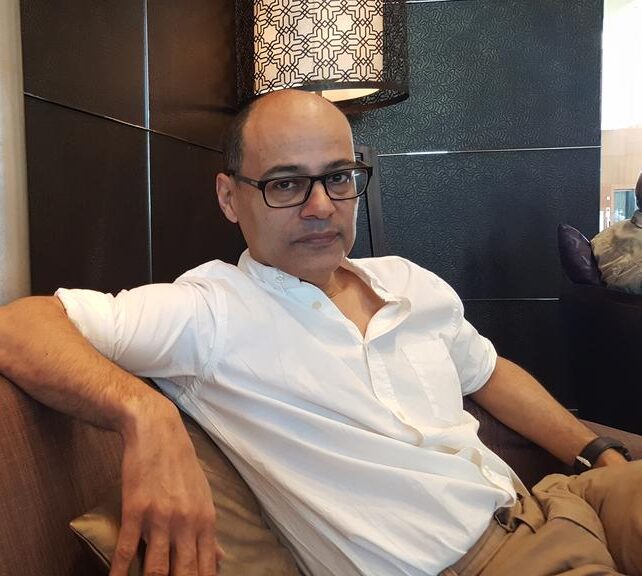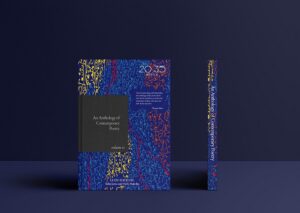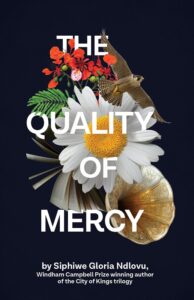Chapter One
LEARNING TO WRITE
This is a story about a band. A band that lived and flourished and then died its own natural death. At that point it should have disappeared from the pages of the history books for ever, and would have done so if an extraordinary miracle had not occurred and brought the Kamanga Kings back to life.
The only religion I have ever had any faith in is music.
I was brought up to respect tradition. I learned to say my prayers. In school we listened to an old teacher muttering on about the life and times of the Prophet. I did my best to picture it, but seventh-century Arabia felt as far away as Mars. In my heart I believed that if there was a heaven then it would be inhabited by saints who answered to the name of John Coltrane and Charlie Parker; to Monk, Louis Armstrong and Nina Simone. Some of our own would be up there too, seated alongside them. Hassan Attiyah and Al Balabil and, of course, our very own Kamanga Kings, the greatest of all.
Great music transcends all barriers. My father used to say that. He used to say a lot of things. He saw himself as something of a philosopher, when he wasn’t being a musician. The way he told it, a nation is like a band waiting for a conductor to show up. Without a leader to guide them an orchestra is just a flock of lost sheep lacking direction. He was certainly right about the country. Our entire history was a list of men who claimed a divine right to lead us. Those who objected tended to fall by the wayside. By the time I was old enough to start asking questions of my own, he was already gone. And maybe that’s just the way of things. He paid the price of living in an age when music was not simply frowned upon, but actively discouraged. Musicians had to flee for their lives. They were im-prisoned and tortured, along with poets and writers, academics, journalists, anyone, in fact, who could voice an opinion. Musicians were objectionable because they could stir your soul and there were a lot of people who were scared of that.
At this point I should probably apologise. The last thing you expected when you picked up this book was a meditation on leadership and national politics. I beg for your patience just a little while longer. I’m new to this writing game. It’s not easy. Whenever I get stuck, which is often, I ask myself, what makes this book worth writing? The answer I always find myself coming back to is simple: if I don’t do it, nobody else will.
Were the Kings truly as great as people said? I don’t know. I’m not sure how we define greatness. All I know is that when they played, back in their heyday, they did something extraordinary. And that when we reformed the band there were moments when we played, really played, when we stirred something in the fabric of the universe that could not be described or imitated, could not be repeated. It had to be lived in that moment. Because that’s all it was, a moment. But that’s what we did, and it’s what we still do when we go out and play. Together we become something more than the sum of our parts. I don’t know about you, but to me that sounds pretty close to a definition of greatness.
Like most little boys, I started out dreaming of becoming a superhero, a man possessed of extraordinary powers, who would devote himself to righting the world’s wrongs, to saving people, leaping over tall buildings and flying to the rescue of beautiful women who were in distress. And like most children, I grew up to discover life doesn’t exactly work like that. Instead of a superhero I became a teacher. I taught English and history to a bunch of ungrateful boys. I took my work seriously. I tried to instil in them a sense of appreciation and respect for the wonders of the world, and of literature. It was a thankless task. All they saw was a short-sighted man spouting nonsense that they could not put to any useful purpose.
It was a good school, or it had been. It was founded by an Italian priest who had left home a hundred and fifty years ago and risked his life travelling across the desert on a donkey to bring us news of Jesus. That’s all ancient history now. He didn’t manage to convert us all, but he did build this school. Nowadays it caters to the sons of low-ranking military officers and government officials. The high-ranking ones send their children to more fancy places abroad. My job was to try and teach them about David Copperfield and A Tale of Two Cities. Dickens was my hero, though there were times when I struggled to explain what the experience of a dead white man in nineteeth-century England had to offer a child growing up in Africa in the early twenty-first century. When I suggested we try to update the curriculum a little, the headmaster screwed up his face, as if I had suddenly started speaking another language.
“What are you saying?” he asked, when I explained my idea.
“Maybe it would help if they could identify with the writers.”
“Identify? How?” He cocked a wary eye at me.
“Modern classics, by African writers.”
“African writers, really?” He looked pained.
It was all academic anyway. The very notion of reading was itself alien to most of the boys. To them books were instruments of torture, inflicted upon them by a dying world. They rolled up the pages, scribbled obscene comments in the margins and drew moustaches and outsized genitalia over the illustrations.
Sometimes I felt like the old man who mistook windmills for giants. I was already twenty-six and, like many people my age, I saw no future for myself, nor the country I lived in. When my father died, he left me two things: a rather battered trumpet and the legend of the Kamanga Kings. For as long as I could remember, the Kings were a part of a lost world, one I had just missed out on. The excitement that came over people when recounting the old stories made you wish you’d been born half a century earlier. Like all legends, that of the Kamanga Kings was a blessing and a curse. Their exploits were woven into the fabric of my life. They shaped the landscape and, of course, the soundtrack from which I had sprung. Their music was the only history I had, etched into my skin like the blue tattoo my grandmother wore on her lip.
A hot wind blows through this old house. Through the open doorway I can see it kicking up the dust in the open yard, tugging at the sheets hanging on the line. I found this typewriter at a stall in the market, its keys rusted into place. They stood out like bony fingers beckoning from the surrounding heap of junk, rusty saws, hammers and chisels, boxes of nails bent out of shape, car batteries, brass scales big enough to weigh a horse, bicycle wheels, wooden saddles and goodness knows what else. The old man who sold it to me confided that it had once belonged to a great writer, whose name had conveniently escaped him. I bargained with him half-heartedly. I knew I was going to buy it. We both knew it. We just had to go through the motions.
“Allah knows, we have need of good writers in these hard times,” he sighed, brushing his fingers fondly over the housing. As a salesman he could have sold sand to the Saudis.
Perhaps, if I had had a little more money, I might have considered getting a laptop, but once I had found it, I became fascinated by that machine. There was something noble about it. With its steel keys and chrome handles, it resembled a bizarre musical instrument. Embossed on the front plate in Arabic: . Olympia. I had no idea what that meant, beyond some vague notion of a mountain where Greek gods and goddesses languished. He promised to have it cleaned up and oiled in a few days. He even produced a box of ribbons that looked as if they might have been used to wrap a mummy. “Soak them in ink for a few days and they will be as good as new,” he assured me. I didn’t care about the details. I didn’t care about the ink. Certainly, I knew I could hardly afford the expense, but I also knew that I had no choice. It had fallen to me to tell this story and if I was going to tell it, then I had to do it now. If I didn’t, nobody else ever would.
So now I sit and stare through the open door at the hosh, dazzlingly bright with sunlight. All I have to do is punch the keys to make letters, let the words build themselves into lines, the lines into pages. I can’t think beyond that. I can’t think that there is going to be an end to this. All I can do is press my fingers down onto the keys. One letter at a time. ♦
The Fugitives by Jamal Mahjoub is published by Canongate.
More Book Excerpts from Open Country Mag
—We Once Belonged to the Sea by Diriye Osman
—Sankofa by Chibundu Onuzo
—Biracial Britain by Remi Adekoya





4 Responses